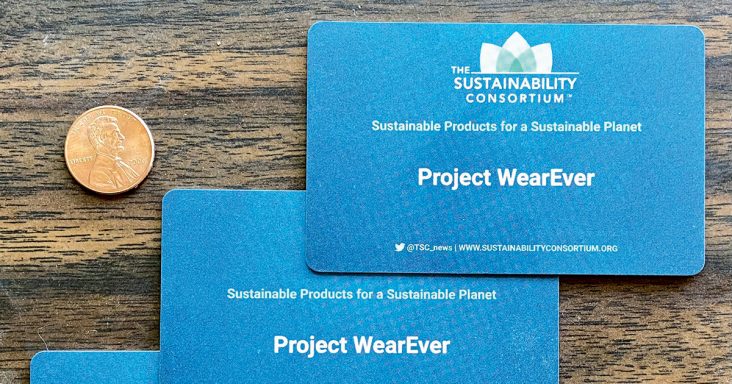Nonprofit uses technology to study clothing durability
by June 5, 2021 9:14 am 516 views

Study participants used their smartphones to scan credit card-size tags to track their clothing usage.
Global nonprofit The Sustainability Consortium (TSC), which is jointly administered by the University of Arkansas and Arizona State University, recently released a study on how technology can track clothing use.
Participants in “Project WearEver: Demonstrating The Feasibility of Using Digital Tags to Measure Clothing Use” scanned digital tags with their smartphones to track apparel use. The study, which cited global apparel sales were $1.87 trillion in 2019, was completed from 2019-2020.
TSC Chief Scientist Kevin Dooley explained the technology as an extension to tags used for tracking clothing throughout the supply chain and deterring store theft. The technology can be used for product research, including determining apparel durability or a garment’s life.
Apparel companies are interested in this and what happens to clothing at end of life, he said. They want to know the percentages donated or recycled to create an incentive to improve the numbers, he added.
“While recycling clothing can be useful and important, that extension of its life — whether it just lasts longer and is more used by its original owner or it’s durable enough … to get into a donation channel and be bought or donated to someone else — that can only happen if the clothing has durability,” Dooley said. “Because if it’s junk when it’s donated, it will just get thrown out.”
TSC, through collaboration, looks to create a standard way to communicate the sustainability data, he said. Also, consumer marketing is interested in the technology as companies want to remain in touch with customers after a sale.
Study participants said a top technology feature was it identified unused garments in their closets. Citing research partner Stuffstr.com, Dooley noted how customers are more willing to donate clothing knowing its lack of use.
He doesn’t expect the technology will be in all apparel, but in the long-term, customers might opt-in to use it for product research and consumer feedback. Also, he said businesses that rent or lease clothing might be interested in the technology to determine how long garments are used.
